While the pandemic has brought a bike boom with it, few in the industry are cracking out the champagne just yet. Sure, things are going well now, but the shipping backlog is keeping more than a few people awake at night, much of the public-facing industry (including racing) is stuck in limbo, and nobody knows how things are going to evolve next. Do you order more stock, hoping that sales will carry on at their current level? What if the boom is followed by a crash? Do you reinvest your rewards in new ideas or start building a war chest in case things get bad?
With this as a background, things have never been harder for sponsored athletes, and that is before you start to account for lockdowns and social distancing. These days only a fortunate few have contracts that list their goal as just "winning races." Put yourself in the shoes of a marketing manager as we head into a second uncertain year. Ok, it was expensive paying your racer all last year, but if that contract is up for renewal now, could you risk that expenditure for a second year? A third? Without the races, there is a lot more time to think about what value that racer is bringing to your brand away from the racing. This isn't a new trend, as the idea that a racer cannot be just a racer is one that has been gaining traction for many years now, but the pandemic has pushed it into overdrive. The word 'value' can be an ugly one, but without a definition it is just nonsense business-talk, so we grabbed a range of people whose job involves sponsoring athletes to see if we could find consensus on what this elusive value really is.
What Constitutes Value From a Sponsored Athlete?
John Oldale, Marin Bikes  | At Marin what we look for in a sponsored ambassador hasn’t changed since the pandemic, we have always only taken on board ambassadors that reflect our brand’s mantra “made for fun”. Whilst we still sponsor a smattering of “racers,” the reason we support them is for their results but more for the atmosphere they create both in and outside of the tape. We look for ambassadors that have no ego and are not only keen to engage with everyone from toddlers to our dealers. We look for people that ride their bike with a smile on their face whilst riding. A prime example was Crankworx 3 years ago; During the slopestyle event several riders had a bad run and immediately retreated to the athlete tent at the bottom of the hill. After a tough time the year prior Matt Jones was eager to have a faultless run, instead he landed the first drop and got a puncture – it would have been easy for him to hide in the athlete tent, but instead he took nearly an hour walking down through the crowd talking to the people who had paid money to be there and see him ride. That to me is an ambassador worth sponsoring! |
Andy Waterman, Tracksmith  | I think a lot of what we're doing at Tracksmith is about ambassadorship, and that extends beyond athletic results or social media reach. We're a running brand and we're relatively young, so obviously we want to grow our slice of the pie within the running industry, but it's also important to grow the pie as a whole. If more people feel confident to say, "I am a runner", that's good for them, for us, and for the sport in general. When I see mountain bike riders doing stuff like appearing at schools and doing backflips in the playground, the result of that may not be entirely measurable, but at the same time, I know that the athlete doing the backflip is valuable to me as a sponsor as those kids will remember that and go home stoked on the sport. In the last year we've taken on two elite middle distance runners as employees. They work for us in community roles and they still get to train properly, while they also get health insurance and all the benefits of a salary. I think that works really well and is an innovative model: with there being so few events in the last year, they've not been racing, but they've still brought a ton of value to the business, hosting podcasts, writing Journal posts and speaking directly to our community. I can imagine a lot of athletes on more traditional performance deals will be pretty concerned about their future, but the way we're doing things means everyone feels valued. It's also true that we have an Amateur Support Program where we support a select group of Olympic Trials Qualifying athletes with kit, and we also supply kit to a small group of elite amateur teams, but that's almost an altruistic thing. Brands have a responsibility to support their sport, and as runners ourselves, we know precisely what kind of effort is required to quality for the Olympic Trials while working a full-time job - we think that deserves recognition, and those athletes often have amazing stories even if they rarely have the capacity to manage huge social media followings.
We don't do a great deal with influencers as such, inasmuchas we don't tend to flow gear and cash to people with large social media followings, but we do other stuff, like for instance, we recently launched the Tracksmith Fellowship, where we asked creatives to apply for a share of $50,000 of funding to help make a project of theirs come to life. They also get mentorship as part of the deal. As part of that program we're helping to fund podcasts, sculpture, documentary films and even a hip-hop album. Running like cycling is an inherently creative pursuit, but unlike cycling, running has never really spoken about that relationship, so it's something we're excited to explore. For us at this stage, I think there's more opportunity for us to be found in projects like this, supporting creators working in the culture of running, than there is supporting individual athletes.
|
Sarah Leishman, SRAM  | Riders who want to make a meaningful living riding their bikes have to hustle these days. Those who are the best at it manage to find a magic sweet spot between performing at the highest level in their sport, being a good human being and finding ways to positively impact their community, all while telling relatable stories along the way. Of course, not everyone does this equally well, but I think the riders who are excelling at this formula are rewarded with sponsorships, exposure, and bigger opportunities.
I spent 2020 (my first year on the job at SRAM) gaining a firsthand appreciation for the work our brand and sports marketing team is faced with as we adapt to constant changes and challenges around the world. We wouldn’t be doing our jobs if we weren’t re-imagining the ideal balance between performance, invention, advocacy and inclusion when we build our partnerships with the riders who represent us. SRAM, RockShox and ZIPP are just as excited about setting our riders up for success as we are about benefitting from their wins, no matter what those wins look like. |
Stephen Matthews, Rocky Mountain  | Athletes and the programs they are a part of create excitement within our sport. The overarching goals of an athlete program should be centered around the riding community itself. These athletes should inspire riders to head out on the trails, or educate them about a product, or even help them find their place as a part of our community.
Reaching more people is always desirable, but supporting athletes that engage with the riding community is a much bigger deal. Whether we're talking about creating how-to videos for new riders, inspirational content for long-term fans, or proving perfection with the top step of a podium, being a true ambassador for the people of our sport is what proves value. The medium might change from year to year, but how the inspiration and information is delivered doesn't really matter so long as it's making an impact. Trends of how to reach people come and go but the notion of making a positive impact shouldn't changes. We run these programs and work with athletes because their efforts bring positivity into our community. |
James Fairbank, Atomic  | The short answer, for me: value is reached when the relationship between a sponsored athlete and a brand is balanced and both parties are pushing and supporting each other to drive a sport forwards. This can be done in multiple ways, across many levels.
Atomic’s global athlete roster is significant, we sponsor over 200 individuals across almost all skiing playgrounds. The roster covers a range of people. From Mikaela Shiffrin: one of the most successful athletes ever to grace alpine skiing to Chris Benchetler, someone who helped shape modern all-mountain freeskiing. Alongside the globally recognizable names, we also support a number of individuals who help define the sport on a local level: mountain guides and members of the bergrettung (mountain rescue) In many cases the local ambassadors aren’t active on social media but they’re hugely important and extremely influential in their local communities.
Together, Atomic and our family of athletes and ambassadors are all orientated by the aim of driving skiing forwards, trying to make it more relevant to more people and inspiring people to move through the mountains in winter safely We have very long relationships with many of our athletes, even after retirement from competition many remain an integral part of the Atomic business, becoming an essential part of the product testing process.
Compared to the road cycling world (I was previously the Central Marketing Director at Rapha) skiing sponsorship is much more about individuals, but there are some common threads between the two sports. The most interesting and valuable sponsorships across both cycling and skiing seem to happen when you try to work with people who’re capable of stretching what sport currently is. On the road/MTB side of things Lachlan Morton is a wonderful example of this kind of character: a world-class athlete who’s capable of communicating the simple joy of just riding a bike. |
Friso Lorscheider, DT Swiss  | Every talk I had with young athletes about sponsoring in the last couple of years, I told them, be prepared to promote yourself and your partners. There are only three athletes getting medals. This was and is true even without corona. Think about people like “Eddie the Eagle”, it was never about his skills in ski jumping, but the results were the only number to count on back in the days. Today there is much more, especially with social media, but this means as well more responsibility. Today everyone’s lives are pretty transparent. |
Benno Willeit, Team Manager, Specialized Global Racing  | Sooner or later you have to justify what you do. We're in the pandemic... How much and how much longer will you rely on something that is purely tied to events if no events are happening, right? Okay, in the bike industry, we're doing well, at least we can pay some of the salaries but you don't want to waste money. So if there are ambassadors or different people out there that give you more coverage, at some stage as a brand and as a company and as a business, you need to ask yourself, is it worthwhile? Is it worthwhile having a cross-country team, a downhill team, a race team out there doing nothing because they can't? It's not that they don't want to, but we cannot do the traditional way of marketing. You can come up with your own events, you do your own things. They can be locally, outside, or they can be virtually on Zwift, on different platforms or even just Instagram, whatever it is. But you do need to think differently at this stage and make sure that you can justify the spend. I still want to pay our riders all year long, racing or not. If I can show the company that, "Okay, we haven't done the traditional racing, but we have been out there in the public eye in different ways", whatever that may be. Like I said, it is a business. Someone is paying our bills. I wouldn't like to waste money for no reason. Therefore we are trying to make sure that we get the most out of the team. We already have the second team camp coming up now. Just because some of the events are canceled, I still go out there with the team and make sure that yes, we may be not racing, but maybe we do another team camp and we can help the developers in Morgan Hill to work on new product and help them a little bit more because all of a sudden we have a little bit of extra time that we can dedicate to specific product testing that we wouldn't have done if all the races kept going. So now I'm just changing certain stuff around but we're definitely not sitting at home doing our own things or doing nothing and just waiting for stuff to happen.
|
Alice Peyredieu, Alpkit/Sonder Bikes  | I think it's been hard for our sponsored riders when the pandemic first hit as races kept on getting cancelled and there was this climate of uncertainty. But actually after a few months we still managed to work together in different ways - all of our riders work for us because they just love riding bikes, it's simple but true! They've discovered new tracks and roads near home, had more time to share their bike knowledge with us and our customer base through content pieces and did some fun challenges like the MTB wheelie challenge from their garden. We also had a few riders who decided to use their time off bike during lockdown to do some crazy paint jobs on their Sonder bike frames. In a way it felt like we all got to know each other better and they are now all ready to get back to racing, more motivated than ever! |

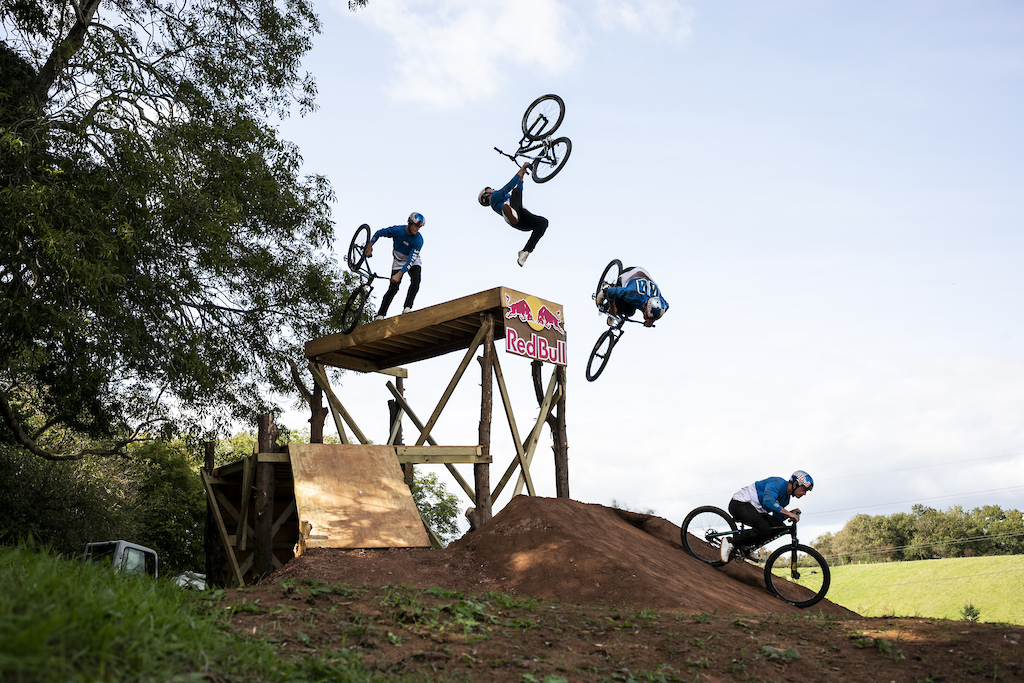
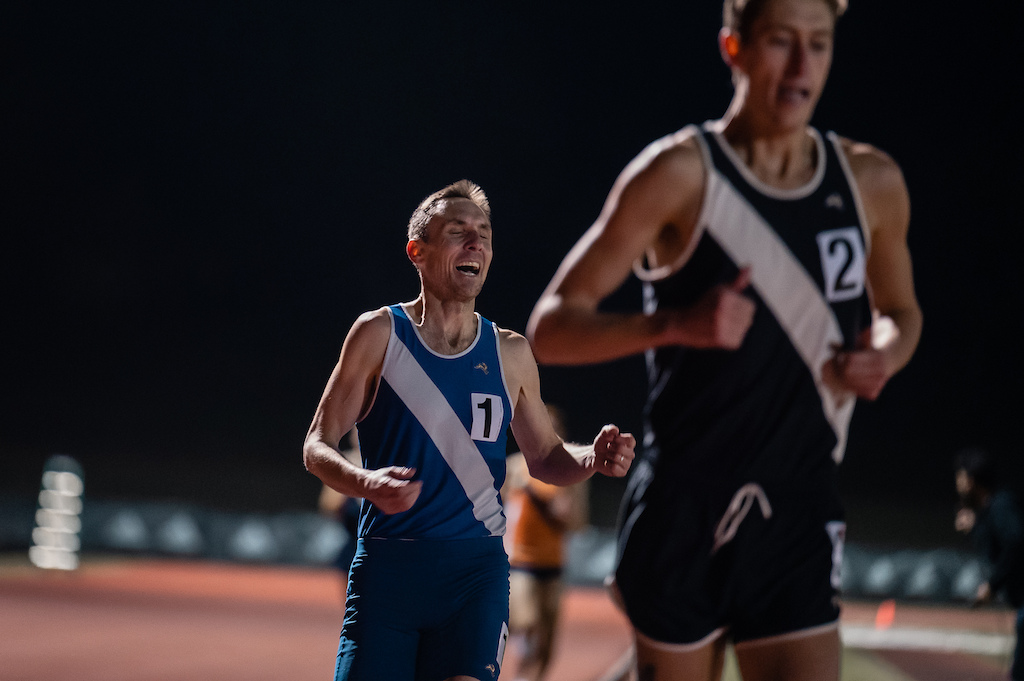

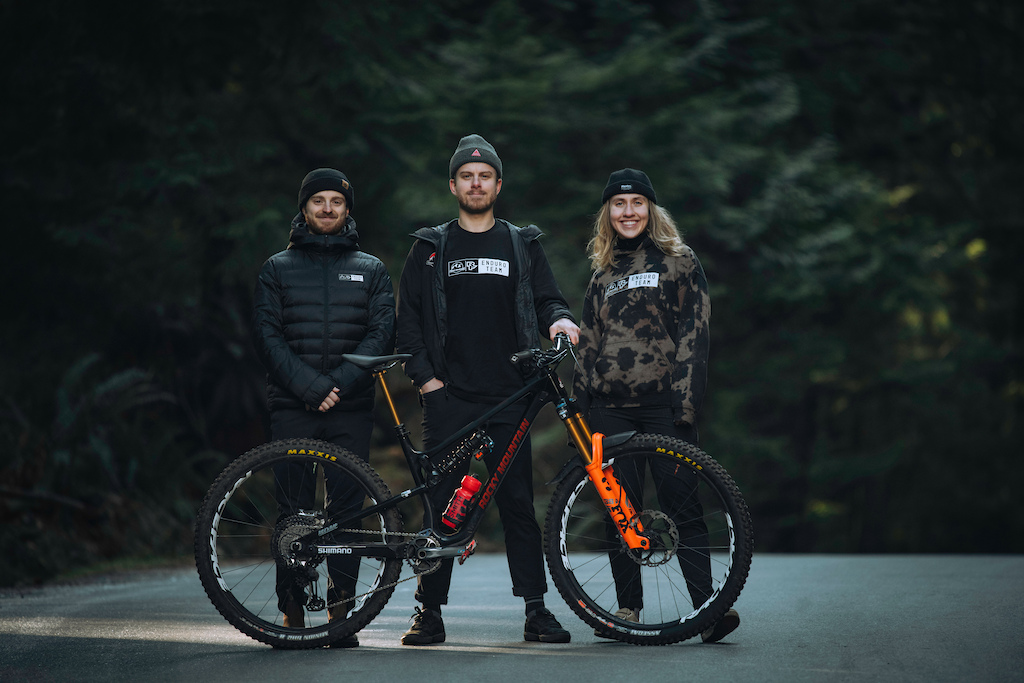

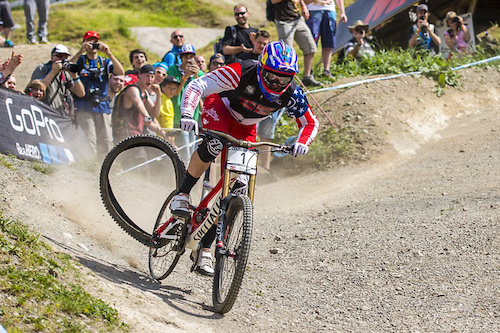
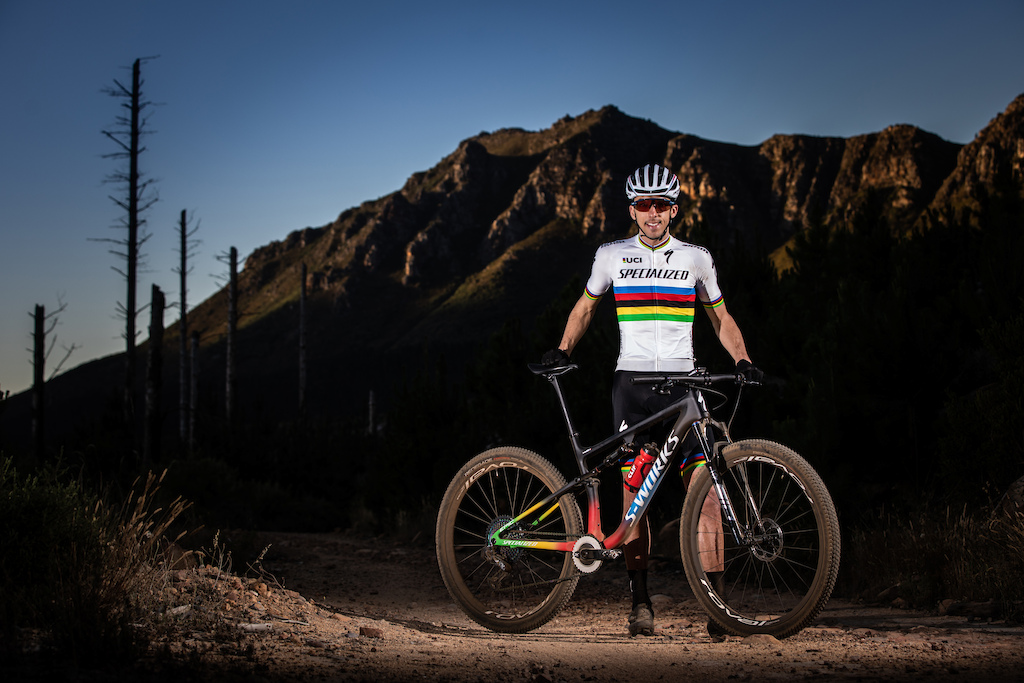


And to be honest is that a big problem the "stupid trailbuilding techinique"(seriously?!?), riding on oncoming traffic, ruts, electric bikes and so on? Guys are just having fun, don't be a Karen.
Another line that confuses me is when people say "These racers are working day in and day out and risking their lives, they deserve $xx,xxx amount of money. AGAIN, you don't get compensated for how much risk you take on, that's never been true. You get compensated for how much value you bring to a company. The last year has made it clear that riders need to be able to adapt and need to realize that their job is ultimately to bring value to a bike company. Some have done it well, some have not. But ultimately this is what is going to determine who succeeds and who does not.
"Value" should probably be in quotes, as there is no objective definition for it.
But if you mean they're limited on what they sell to customers, that's true. But it seems to be effective as hell. My son is always pushing for a Redbull when he's going for a long session with his friends.
I'll pick up a Red Bull just because I appreciate the company's commitment to the sports I love. Maybe that marketing, IDK, but I don't care that much.
Change my mind
Braydon Bringhurst for example. He is so good that I would not call him an "influencer", but that is essentially what he is for Canyon since he does not race and only makes videos and content.
I work on the giving end of this relationship in a totally unrelated industry and I can say for myself; I am completely and totally exhausted with the state of play. "Influencers" are still valuable. But I'd argue that most people who think they are influencers or are seen as such aren't actually. They're entertainers - which has value for certain types of products i.e. not durable goods.
We had the biggest influencer in our industry when he was at 20,000 subs. We dropped him at 150k. Now he's at 570K and I couldn't be happier to be rid of him. He now has a warped perception of reality and the value that he actually adds. He's an entertainer. He could probably sell the heck out of iphone cases and T-shirts, but not what we're selling.
Another we signed on at 60k and he's now up over 450k subs. We pulled out a while back because he never materialized as an actual influential voice. His numbers don't match his knowledge and his credibility. Looking back, I'm pretty sure he bought a lot of those subs too. His view and comment ratios don't match.
We still have two people that we're working with. They're both teachers. They are seasoned professionals. They offer up free and USEFUL information to their audience and they do more to help people learn than they do to entertain. This is where it's headed. I think more brands will jump on board and focus their dollars on people who don't have baggage, aren't risky, and are genuinely productive, helpful people ..... that happen to have an audience.
I also predict that more brands will bring some of these activities in house. We do it. And it's paid dividends. We're a $100m company and we routinely crush every other company in our industry in online views and watch time. That includes a lot of $1b+ companies too. People just want authenticity. Eventually brands will figure out that paid ads are not the most efficient way to get this done.
Brendog would have to be near the top as he’s the only one (to my knowledge) who has a film on Netflix which reaches billions of people globally. There’s always rad clips/images from the races plus he’s always putting out social content.
Please, therefore, consider all the race and event organisers bending over backwards, please carry on supporting / sponsoring / attending as we've had it hard over the last year. Thankyou.
I think a mixture between modern media, the covid situation and the results of certain athletes have changed the answer to this question drastically in the last couple years.
It used to be results results results. With a few exceptions. Now... you have those people. Some people don't operate well on social media and don't really create content on their own so results are critical to those people. But on the other hand you've got a new segment of riders that aren't competing (much) and are creating crap tons of content for themselves. So putting dollar figures with those results is the real question. How much value do guys like Reed Boggs, DJ Brandt, Ethan Nell, hell Wyn Masters, etc bring to your brand?
In my opinion... a lot.
When Wibmer hit the market and was talking with brands for sponsorships a few years ago I think it was a huge mistake that FOX slept on him. But FOX is very much.... a results brand... and these days... race race race. So it didn't fit the vision. But sometimes there should be some flexibility there. 100's of millions of views worth of flexibility.
This question for me gets very very important as these guys age and life/competitions change. Look at say... Tyler McCaul and Cam McCaul. Both of them put out crazy awesome content. Both of them have names that people know, history. Both of them have potential current and future in the booth. Both of them are industry loved. So what's their value? High if you ask me. A brand like Marzocchi can do a lot with those guys... with or without competitions. Sometimes you have to look at more than just results and dollars and think about what feels right for the brand. Does the harm of tossing someone outweigh the money you pay them?
Brett Rheeder... dudes still young but he's coming off and injury with priorities shifting away from competition. But what type of value has Symenuk brought to his brands as his career changed? Not holding on to Brett right now is uh.... silly if you ask me. Dude can still win any Slopestyle contest on a good day and Rampage while he's at it. And his content is just going to improve as the time spent making it goes up.
Being in athlete/brand marketing right now is insane. Everything is changing and it's incredibly hard to put numbers down in front of number crunchers that only know numbers. Unfortunately the industry workers know wtf they're talking about but the industry management is all about numbers right now. At least for larger brands. There's so much money spinning around in the industry right now and it's gotten more and more corporate. Boards. Marketing people from outside the industry up at the top. Etc. How do you monetize clicks, views, followers?
Reminds me of when YouTube was just becoming a thing. A lot of people didn't... hell still don't see the value in it. Meanwhile a 10 year old is making $27m a year opening up toys.
I think what's mixed in here "what medium should this be done through". Feel sorry for "athletes" because a traditional show up and race or just be in a yearly bike video release no longer really cuts it. If a youtube video or instagram post gets more traction (and therefore sells more product), then yeah, it's going to be more valuable to sponsor those people no matter what.
Can't really change that equation unless you change the behavior of the peeps buying the stuff, aka us.
I believe a lot of the purchasing power in the mountain bike industry has reached an age and risk level where they know that a double back flip to manual is not in their future. Becoming a parent makes you a lot less likely to be attracted to videos of people playing in traffic at high speed. Personally the things I look for are great trails to ride in my area, stuff that might actually work on my bike, and future changes in the industry, told as a brief compelling story. The thing I look for most is someone who will try a product that isn't any good and say "this isn't any good" or "you don't need this". Entertainment, bike skill legitimacy, a truthful voice rather than a sponsor voice. I am allergic to "this bike is sweet because they pay me".
There is a lot of hate for entertaining medium-skill youtubers but they changed this game and there are a lot of tire prints following their trail.
So we have a bunch of new riders. How do you keep them interested? How do you open the sport up to them? It's a about lifestyle... what is #mtblife it's many things it's adventures, it's social, it's competitive, be that at DH worldcup or chasing your mates down a trail.
(A) Invest in events
(B) Invest in community e.g. sponsoring a new trail hub
(C) Invest in visible role models that will participate themselves and promote your brand and the sport
Provide that space for adventure, for socialising and for competition then more people will participate, more participation means more customers.
Winning a race is already integrated in those numbers, because winning means more followers/vues/likes :-) !
Perhaps my experience is only illuminating to small businesses and large corporations benefit more from the exposure alone.
The marketing world has shifted to the smaller venues ( Instagram YouTube ect) because it cuts costs. However due to the promotional codes, it gives clear metrics on engagement leading to sales.
Sponsoring Aaron Gwinn is harder to quantify than giving a 5% off code to some YouTube channel. You can see exactly what your dollars buy you as a company.
Additionally the people doing this are fungible. You are putting very little into these people in exchange for huge amounts of their time. Shooting and editing on a schedule that pleases the algorithm is time consuming.
The influencer has replaced an entire ecosystem of professionals who made a living producing professional content for brands.
It of course still exists, but the pool of professionals has diminished.
Replacing them with anyone with a gimbal and a DLSR. Which further drives down labor due to ubiquity.
The Influencers have no choice to but to sell their labor in a highly competitive environment at the whim of an algorithm that can render them obsolete.
Yes some of them 5% do alright with the fee structure and sponsorship.
1% do huge business. This is the methodology of these systems. The winner takes all.
Anecdote time:
I dated a girl trying to make it as an sport influencer. I run my own business so I helped her run the numbers for hers. She made about about 1.50 per hour in product. She would have had more equipment and free time if she got a second job.
Emilie Siegenthaler has a studied psychology if i'm correct. Can be of huge benefit for a team.
If someone did something in finance they could be working part time in the finance department of one of the brands. Off-season in the northern hemisphere often also is the season of financial year-finals (dont know how its called in english).
I think that this way a brand could sometimes benefit more than just getting 40'000 views on youtube or getting tagged on a instagram post.
We should ask the Marketing team of Barilla, how much they'd like to grow the ski community and push the sport forward
That was my point, he might not be the sexy face of the sport with his helmet off and a mic pointed at him to attract new people to mtb, but he still gives value to his sponsors because anyone already here knows he is a man to listen to